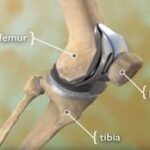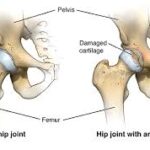Best Knee Replacement Surgery Hospital in Lagos
Knee replacement, also called knee arthroplasty or total knee replacement, is a surgical procedure to resurface a knee damaged by arthritis. Metal and plastic parts are used to cap the ends of the bones that form the knee joint, along with the kneecap. This surgery may be considered for someone who has severe arthritis or a severe knee injury.
In a healthy knee, the ends of your thigh and shin bones are covered with hard cartilage which allows the bones to move easily against each other. Arthritis damages the hard cartilage so that it becomes thin. In places the cartilage may wear away so that your bones rub against each other and become worn.
In a knee replacement operation, the worn ends of the bones and any remaining hard cartilage are removed and replaced with metal and plastic parts. The plastic acts like hard cartilage, helping your joint to move freely. The interlocking parts of the artificial joint allow your knee to bend while also making it more stable.
Arthritis of the knee is a condition in which there is loss of the articular cartilage of the femur, tibia, or patella. This can be seen on x-ray as a loss of the space between the two ends of bone.
The four main types of knee replacement surgery are:
- total knee replacement
- unicompartmental (partial) knee replacement
- kneecap replacement (patellofemoral arthroplasty)
- complex or revision knee replacement.
Knee Replacement Recovery
Your return to activity will be guided by your surgeon and therapists. Generally, patients are able to walk as much as they want by 6 weeks post-operatively. Patients are able to resume driving at 6 weeks. At 8 weeks, patients are able to resume playing golf and swimming; at 12 weeks, they may play tennis. Your surgeon will help you decide what activities you may resume.






